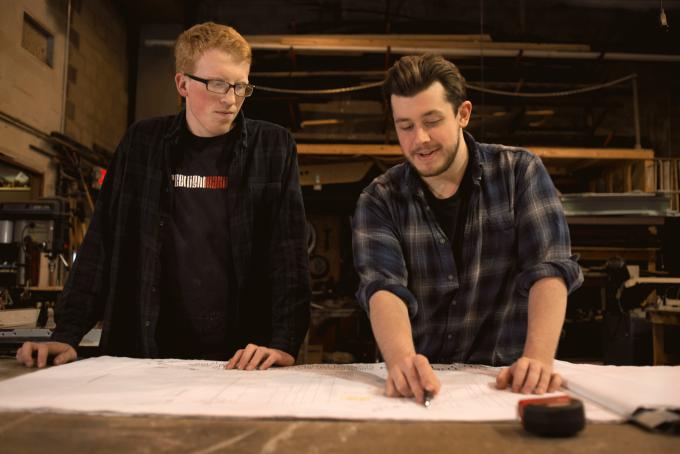Technical Theatre Students Learn craftsmanship and management

The Point
Fall 2013
Aaron Bollinger is head of technical theatre at the Conservatory. He teaches courses in such areas as hand drafting, computer-aided drafting (CAD), elements of stagecraft, scenery construction, technical direction, technical management and technical design. A specialist in scenic automation, show control and digital media engineering for the stage, he is also the technical director for Pittsburgh Irish and Classical Theatre. Technical theatre falls into three main areas, says Bollinger. The first is craftsmanship, that is, learning such crafts as costume construction, sound engineering, master electrician, carpentry and welding. Those are types of crafts that students learn. The next step in the process is the technical management of those areas, according to Bollinger.
Making Design Dreams a Reality
Related Links
"There are many different aspects to technical direction. Such as, learning how to manage crews, as well as budgets, and managing your time - so that the product comes out not only well but also beautifully and is accepted by the audience," he says. "Finally, technical design is taking these aspects of the craftsmanship - the tools and the equations - and making the process extremely efficient." Students take core courses that give them knowledge of the craft, then they move on into managerial positions, he says, including such roles as an assistant technical director or master electrician [who] has to take the designs and create that work and bring it to life. I feel that technical theatre is an art, but it's the art of reality," says Bollinger. "It's taking a dream that a designer has and making it a reality."
Text by Cheryl Valyo
Photo by Martha Rial
The Point is a magazine for alumni and friends of Point Park University

